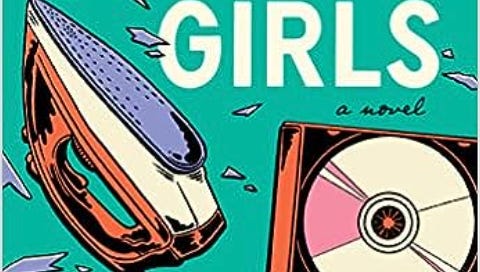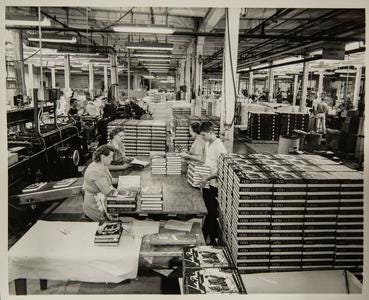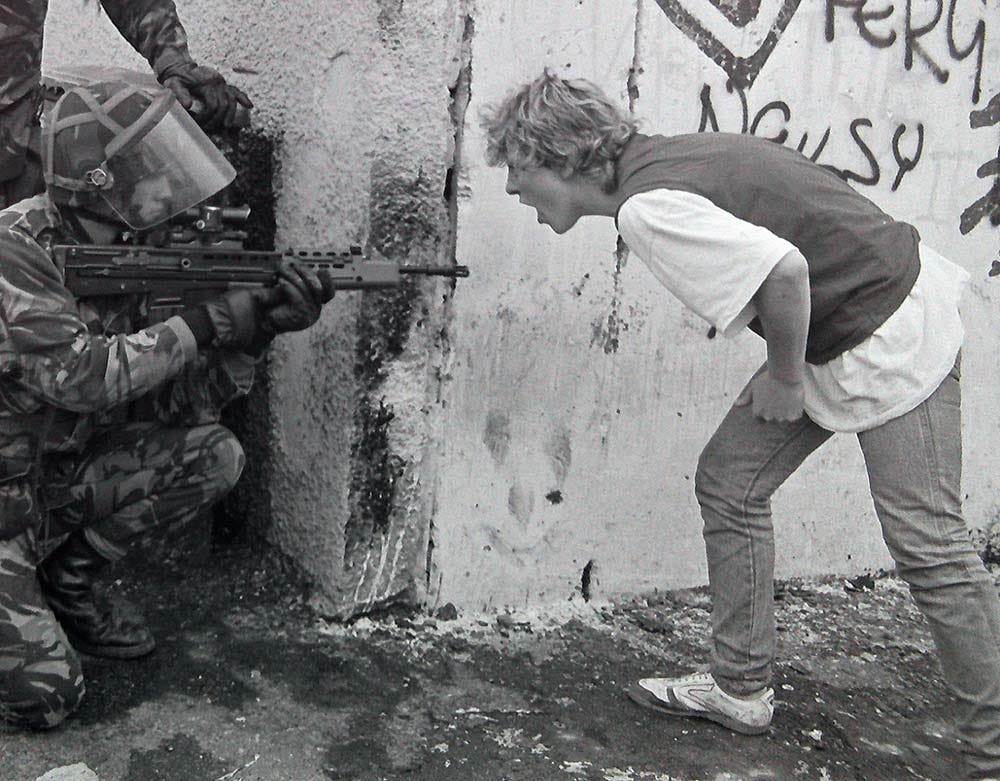The greatest change in my life occurred when I waved goodbye to my parents, the dorm elevator doors closed, and there I was, finally, in my real life.
Anything could happen, I thought. Anything.
That very evening, I went to the Union with a bunch of girls I’d only just met, and the boy I’d marry walked through the revolving doors, took in the room, and headed in my direction. We talked a while; he made me laugh. When he asked me out, I said, yes. Then spent most of the next day mortified because I was sure he’d only been joking.
It wasn’t as if I’d had many dates in high school.
But he showed up at my dorm that afternoon (he confessed later) to make sure I’d really meant what I said. I told him, yes. I did. And over the next weeks and months, it seemed that everything about my life went from black and white to color.
Indiana University, 1965: a gorgeous campus, leaves coloring toward fall, classes that made me want to learn more and more and more. Days untouched by my troubled family. A boyfriend! Sometimes it’s painful to remember the happiness of my freshman year in college, that first, glorious sense of what it meant to belong.
I’ve been thinking about that time lately, as the young people I know gear up to go back to school. I’ve also been thinking about working in a book bindery the summer before I got to I.U. and how the euphoria I felt in that first moment of my brand new life was mixed with gargantuan relief at having walked away a few days before from the life as a factory worker I might have had.
I worked the second shift: four p.m. to eleven p.m. I’d get home, too wired to sleep. So I’d read until I dropped off, waking up just in time to take a bath, dress, and eat lunch. Then I’d walk the better part of a half hour to get to the bus stop by two-thirty.
The heat of the factory, the smell of ink and paper closed in around me when I entered, envious of day shift people hurrying toward their evenings. I punched my timecard, walked into the thump-thump of machines spitting out pages of books and pastel-colored maps beneath flickering fluorescent lights.
I worked in the packing area, unloading books from a conveyer belt onto pallets for the women who put them in boxes and sent them on their way—who knew where. My back hurt, my feet ached from standing on concrete. As much as I loved books, I sometimes thought, if I have to lift another one, I will scream.
There were high windows along one side of the building and I’d look up and track time from late afternoon to twilight to dark. My dad would be waiting for me at eleven, Big Band music playing on the radio.
Factory Girls by Michelle Gallen brought back that endless summer of my almost-former life.
The novel is set 1994 in Northern Ireland, where eighteen-year-old Maeve Murray is waiting for the final exam results that will ensure her ticket to studying journalism at University College, in London. To pass the time and earn spending money, she and her two best friends, Aoife and Caroline, also waiting for their results, take summer jobs in a shirt factory.
I was hooked at the first sentence, which made me laugh out loud.
“Maeve Murray was just eighteen years old when she first met Andy Strawbridge but she knew he was a fucker the minute she laid eyes on him.”
Maeve’s take on the estate where she’s grown up, her down-and-out family, and the factory, where she mixes with Protestants—“Proddies”, she calls them—for the first time in her life is often hilarious. Even the names made me smile: Baldy McGee, Fatty Dolan, Foncy Logue.
But the book is about so much more. Her friendship with Aoife and Carolyn strains as what-comes-next grows closer. Maeve’s family, her dad out of work, all of them grieving over Maeve’s sister’s death, is barely getting by. Maeve drinks too much; everybody does—Maeve’s parents and friends and co-workers—and the effect on their lives hurt my heart.
And it hurt my heart to know, from my own experience, that Maeve would never really get away from who she was in this place that formed her. For better or worse, it would always be there, inside the self she made when her time there was over.
In my story, the Sixties were heating up, things were about to explode. But in Maeve’s story, in the midst of the Troubles between England and Ireland, there were bombs, shootings, and riots. Catholics lived in fear of being beaten or killed by the Brits and the Orange, their Proddie supporters. They never knew who among them might be a member of the IRA or the Royal Ulster Army just waiting for the right moment for revenge, which was likely to result in some kind of conflagration.
The Troubles come into play in Factory Girls when Andy Strawbridge accepts a major contract from some Men in Suits who arrive at the factory one morning. Maeve’s dicey relationship with him, as well as her friendship with a co-worker, butch, blue-haired Fidelma Hegerty, put her in the position to learn what’s really going on. The denouement of the novel unfolds from there, one that challenges Maeve’s beliefs and loyalties in ways that will profoundly influence what her next life will be.
The summer of my almost-former life changed me, too. Learning what it meant to have a job that demanded nothing of my intellect and left me physically and mentally exhausted gave me respect and compassion for my fellow workers, something that’s stayed with me all my life. Over those hot summer nights, more than a few of the women confided over unloading and packing books that they once wanted what I had a shot at now: an education, a better life.
When I clocked out the last night, every single one of them wished me well.
At the moment, all I could think of was getting the hell out of that place!
Years later, I’m so grateful to have known them.
#FactoryGirls, #The Troubles, #Michelle Gallen







So glad you enjoyed it. I love the way books dredge up times of your own life and make you wonder about...everything.
Thank you!